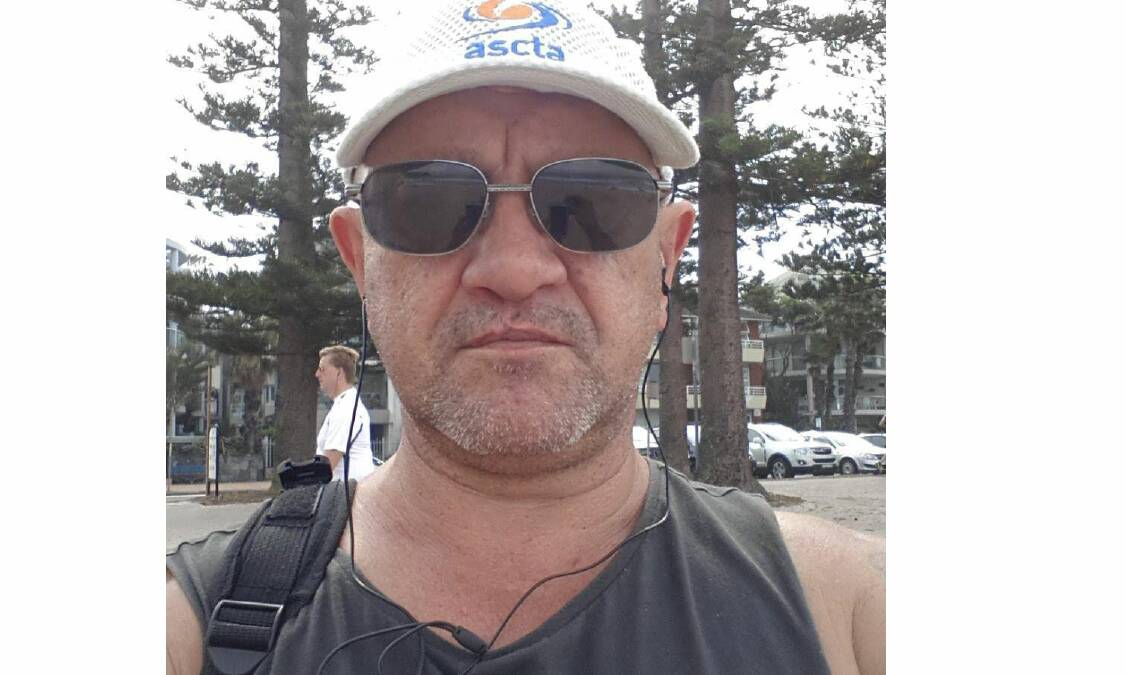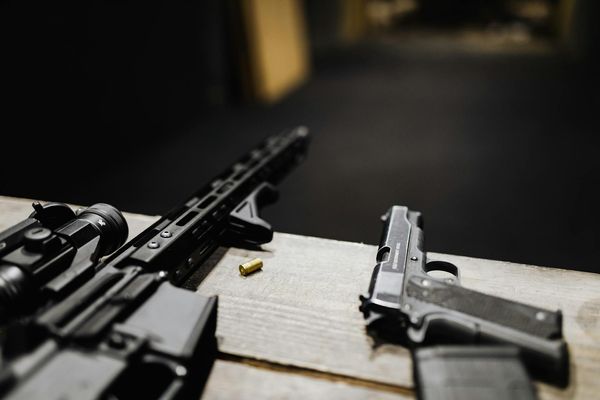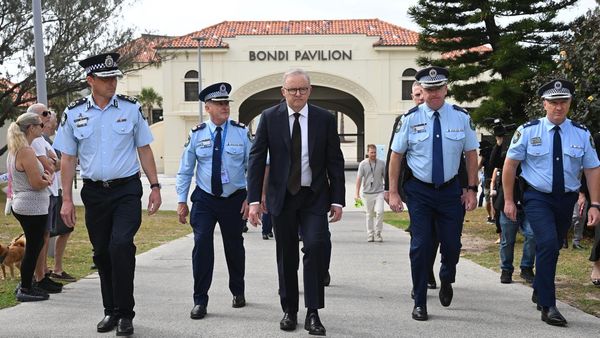
An intellectually-impaired boy and his family have been left with an "ache that never goes away" after his father was murdered following a violent attack over which the offender has been sentenced to 16 years' jail.
Aaron Baxter was 46 years old when his friend Alan William Delaney assaulted him under Queanbeyan's Monaro Street bridge about 8am on Boxing Day in 2019.
Delaney, 53, believed Mr Baxter stole money from him and was meddling in his relationship, including telling Delaney's then partner that the men were going to a brothel.
Upon approaching the victim, Delaney, heavily drunk at the time, threatened to kill him before assaulting him.
At one point, Mr Baxter's head struck a concrete bridge support from blows to the head after Delaney had driven him against it.
Before leaving the scene, Delaney said "get down to the river so I can drown you".
He then continued to make kill threats from across the bridge towards the victim, including words to the effect of "I'm going to cut your head off".
A witness at the time, living in his car, saw that Mr Baxter was on the ground and tried to help him.
Mr Baxter stood up, took a few steps, then collapsed.
He was taken to Queanbeyan District Hospital but died about 11am that day.
An autopsy revealed the cause of death was a rupture of his spleen, leading to massive internal bleeding, hypovolemic shock and heart failure.
In February, a NSW Supreme Court jury in Queanbeyan found Delaney guilty of murder.
He faced court again on Tuesday for sentencing when Crown prosecutor Nerissa Keay read out a victim impact statement by Dana Souter, Mr Baxter's sister and now carer of his 13-year-old son.
"He was a father and he loved nothing more than his son," Ms Souter's statement reads.
Ms Souter wrote that the boy has an intellectual disability and while he was a genuinely happy and life-loving child, his dad was missing in his life.
"I tried to explain that his dad is no longer here with us and then having to answer his questions," she wrote.
"That innocence of not knowing what violence was has been taken away [from the boy] the day his father Aaron died.
"He's angry, he can't comprehend this. He can't regulate how he feels and it's breaking him."
Ms Souter wrote that some days she wants to give up because it is too painful and that the death "has completely rocked us all".
"My whole world was turned upside down and having to relive the fact that he is not here every day is distressing, emotionally draining and heartbreaking," she wrote .
"I have an ache that never goes away."
The court also heard that the death left the victim's mother hospitalised after going into a state of depressive psychosis.
"We are all hurting, we're all a bit lost and trying to find our way," Ms Souther's statement reads.
"Instead of celebrating family, we are mourning. Christmas is full of fake smiles, everybody walking on eggshells."
During trial, intention and causation were two of the major contested factors.
In his sentencing, Justice Desmond Fagan said it was implicit in the jury's verdict that they found Delaney committed murder by intending to inflict grievous bodily harm, which is one of the categories of the offence.
The judge said he was not satisfied Delaney intended to kill the victim because the offender did not know that Mr Baxter had health issues - from long-term heavy alcohol consumption - related to his spleen that made it more vulnerable to external blows.
He said that as "aggressive as the attack was, it did not involve anything like the ferocity or persistence that had to be exhibited" if there were an intention to kill.
He said the intent in this case "was no more grave or culpable than the very lowest level of intent" that would qualify the offending as murder.
"Devastating as the death of Mr Baxter has been for his family and friends, on the facts I have found them, the objective circumstances of this murder places it decidedly at the lower end of the range of seriousness as assessed for the purposes of punishment," Justice Fagan said.
The judge, however, acknowledged the impact on the family and said that it was "terribly hard" for them to accept and reconcile the death with sentencing requirements.
In relation to causation, Justice Fagan said he was satisfied that one or more of the blows - from kneeing the victim - caused the broken ribs and thereby the ruptured spleen.
He said he had no confidence in the offender's prospects for rehabilitation because of his failures from past opportunities.
Justice Fagan sentenced Delaney to 16 years' jail, backdated to December 2019 when he was taken into custody.
With a non-parole period of 12 years, Delaney is eligible for release at the end of 2031.
The judge told Delaney that the Crimes High Risk Offender's Act also applied to him.







